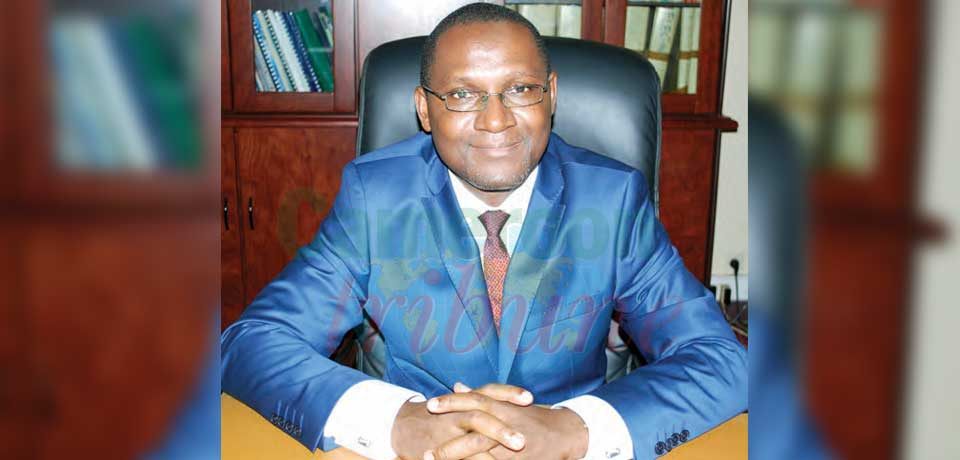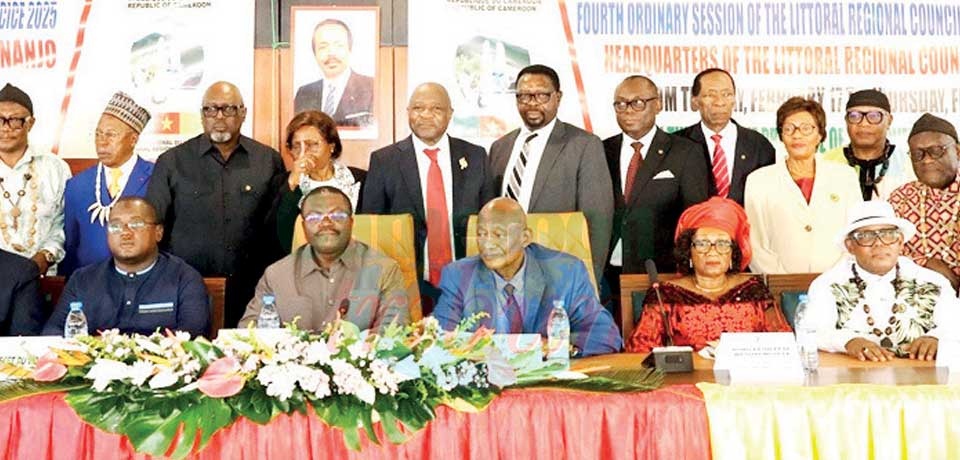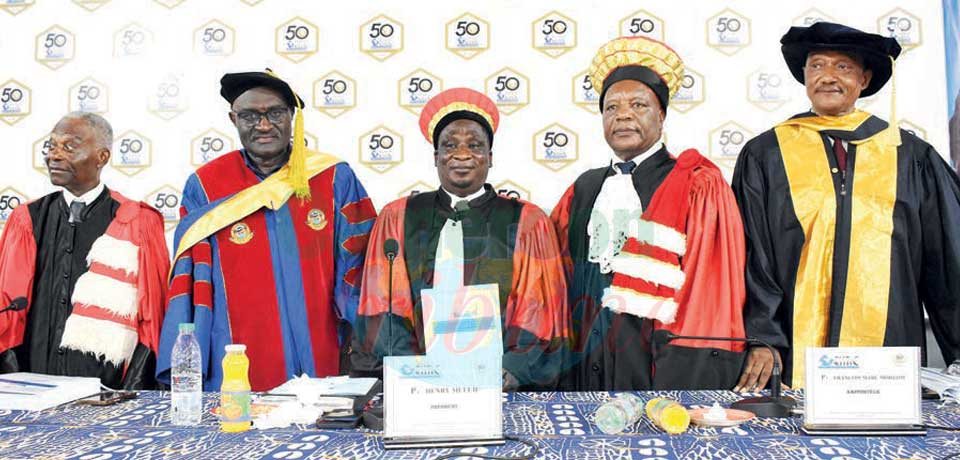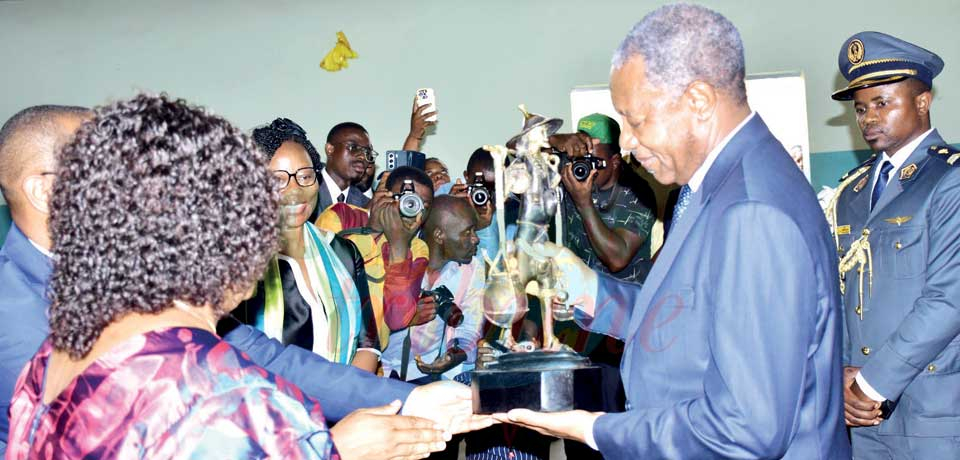“Almost 9,000 Fake Social Media Accounts Have Been Closed”
- Par Kimeng Hilton
- 08 Aug 2025 10:18
- 0 Likes

Prof. Ebot Ebot Enaw, Director General of the National Agency for Information and Communication Technologies, ANTIC.
Social media in Cameroon is awash with hate speech as the country prepares to elect the President on October 12, 2025. What explains this situation?
The phenomenon of hate speech on social media platforms such as Facebook, X (formerly Twitter), and the instant messaging app, WhatsApp, is not new to Cameroon. However, it has been observed that such activity tends to peak during major events that significantly impact national life. In this context, as the country approaches the presidential election scheduled for October 12, 2025, a surge in hate speech on social media is predictable and can be attributed to several interrelated factors.
First, the high penetration of social media platforms in Cameroon has created a space for the country’s approximately 5.5 million users to express political opinions, frustrations, and emotions more freely - often without restraint, in contrast to traditional media, which are governed by strict editorial policies and codes of conduct. Unfortunately, this digital freedom is often misused by some users, leading to the spread of divisive rhetoric, tribalism, and incitement to violence driven by conflicting political ideologies.
Second, weak digital literacy among a significant portion of users makes it difficult to distinguish between responsible civic engagement and harmful speech. Many individuals unknowingly contribute to the spread of hate by sharing or reacting to provocative content without understanding its implications.
Third, the exponential increase of online hate speech at such a period is equally linked to the supposed anonymity and even impunity that social media platforms provide to hate speech promoters. Their identities are never verified during subscription, thus giving them the latitude to use fake profiles. Anonymous accounts and lack of accountability make it easier for malicious individuals to stoke tensions without fear of repercussions.
However, thanks to digital forensic techniques and tools, it is possible to gather electronic evidence that enables the identification of the author of a publication or electronic communication. Leveraging these capabilities, along with a productive working partnership established with social media platforms, ANTIC has since 2018, detected and reported 12,666 fake accounts impersonating government officials, of which 8,863 have been closed.
What can be done to prevent or mitigate this trend?
To mitigate the growing trend of hate speech on social media, particularly in the lead-up to national events like elections, a multi-pronged approach is essential. This entails strengthening digital literacy and civic education. This is an effort ANTIC has been actively pursuing through its ongoing nationwide awareness campaigns, by equipping citizens, particularly youth. They are offered the skills needed to engage responsibly online, recognize hate speech, and understand both its legal and social consequences.
Platform accountability is equally essential. We are working closely with social media companies to encourage their collaboration with local authorities in enforcing community standards, detecting harmful content early, and taking swift action against violators.
Equally important is the need to enforce existing laws. Cameroon already has legal provisions under the Cybersecurity and Cybercrime Law that criminalize online incitement to hatred, violence, and discrimination. These laws must be applied consistently and fairly to deter offenders. In this regard, Section 77 of Law N° 2010/012 of 21 December 2010 relating to Cybersecurity and Cybercrime in Cameroon provides clear sanctions for individuals who use digital platforms to promote racial or religious contempt.
This section states in its subsection (1) that: Whoever uses electronic communication or an information system to act in contempt of race or religion shall be punished with imprisonment from 2 (two) years to 5 (five) years or a fine of 2,000,000 (Two million) to 5,000,000 (Five million) CFA Francs or both such fine and imprisonment. It adds in subsection (2) that: The penalties provided for in Subsection 1 above shall be doubled where the offence is committed with the aim of stirring up hatred and contempt between citizens.
Beyond legal measures, it is equally vital to promote alternative narratives that foster peace, unity, and informed debate as a way to counter hate speech. In this light, influencers, journalists, and civil society actors all have a role to play in setting a positive tone online. Still in keeping with efforts to curb the spread of hate speech and fake news in Cameroon, ANTIC has developed a fact-checking platform and trained the National Communication Council on its use. The Agency is currently working in close collaboration with the Council to identify and engage competent stakeholders with a view to ceding the platform for sustained and effective deployment.
What are the consequences of social media hate speech on the forthcoming election and society at large?
Hate speech poses severe threats both to the integrity of elections and to the stability of society at large. In the context of elections, hate speech erodes democratic principles by fueling division and undermining informed civic participation. It creates a toxic environment where emotions override facts, discouraging constructive debate and polarising communities along ethnic, religious, regional, or political lines. This often distorts public perception, influences voting decisions based on fear or resentment, rather than policy and can delegitimize electoral outcomes. In some cases, hate speech has been a precursor to electoral violence, threatening peace and security.
Beyond elections, the societal consequences are equally dire. Hate speech, particularly w...
Cet article complet est réservé aux abonnés
Déjà abonné ? Identifiez-vous >
Accédez en illimité à Cameroon Tribune Digital à partir de 26250 FCFA
Je M'abonne1 minute suffit pour vous abonner à Cameroon Tribune Digital !
- Votre numéro spécial cameroon-tribune en version numérique
- Des encarts
- Des appels d'offres exclusives
- D'avant-première (accès 24h avant la publication)
- Des éditions consultables sur tous supports (smartphone, tablettes, PC)














Commentaires